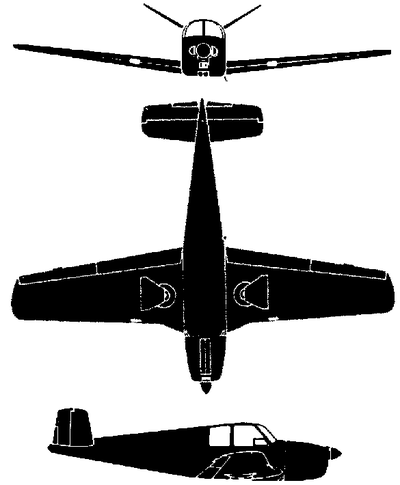Judge Says Case Should Never Have Been Brought Against
Mechanic
 Following a two-day hearing in Philadelphia, the Chief
Administrative Law Judge of the National Transportation Safety
Board dismissed an emergency order issued by the Federal Aviation
Administration that sought revocation of the Airframe &
Powerplant, Inspection Authorization, and Commercial Pilot
certificates held by a New Jersey aircraft mechanic.
Following a two-day hearing in Philadelphia, the Chief
Administrative Law Judge of the National Transportation Safety
Board dismissed an emergency order issued by the Federal Aviation
Administration that sought revocation of the Airframe &
Powerplant, Inspection Authorization, and Commercial Pilot
certificates held by a New Jersey aircraft mechanic.
The FAA alleged that during an annual inspection, the mechanic
made a fraudulent or intentionally false maintenance record entry
concerning the Emergency Locator Transmitter battery, and that he
returned the aircraft to service with airframe corrosion.
The mechanic testified that during an inspection of a 1947
Beechcraft Bonanza, he noted that the ELT battery had expired. He
immediately notified the owner, who was assisting with the
inspection.
He then removed, tested, and replaced the battery back into the
aircraft after confirming that the battery still contained
sufficient charge. The maintenance record entry stated "Removed and
replaced ELT battery next due for replacement again in
[intentionally left blank]."
The owner testified that he was going to supplement the
maintenance record entry after he had installed the new battery.
Although the battery had been purchased, he forgot to install it in
the aircraft.
The Chief Judge substantially relied upon the testimony of
Carmine "JC" Colaluca, Chief Inspector of a repair station located
in Frederick, MD. Inspector Colaluca was accepted as an expert in
General Aviation maintenance.
According to Colaluca, the maintenance record entry contained a
"poor choice of words." However, in his opinion, the mechanic did
not violate the Federal Aviation Regulations.
Based upon the expert testimony, the Judge found that the
mechanic meant he "removed and reinstalled" the battery. Since the
aircraft did not require an ELT battery to be airworthy, he found
"no fraudulent or false intention" by the mechanic.
During cross-examination, FAA Inspectors Daniel Spera and Thomas
Mancuso from the Teterboro, NJ Flight Standards District Office
stated that they never spoke with the mechanic or the aircraft
owner during their investigation.

As a result, the Judge found "insufficient contact" by FAA
Inspectors to ascertain the facts before initiating a revocation
action. The Judge stated that there was a "failure to communicate"
between the FAA and the mechanic.
 Unrelated to the annual inspection, the aircraft's nose gear
collapsed upon landing eight months later. At that time, Inspectors
Spera and Mancuso took pictures of what appeared to be corrosion on
the left flap. Based upon the photos alone, they incorrectly
testified that corrosion existed at the time of the inspection.
Unrelated to the annual inspection, the aircraft's nose gear
collapsed upon landing eight months later. At that time, Inspectors
Spera and Mancuso took pictures of what appeared to be corrosion on
the left flap. Based upon the photos alone, they incorrectly
testified that corrosion existed at the time of the inspection.
Neither inspector had experience maintaining aircraft near the
highly corrosive Atlantic Ocean seashore, where the aircraft had
been based.
The mechanic testified that he removed the right flap based upon
the amount of corrosion noted during his inspection. Accordingly,
the Judge found that "when and if" the mechanic saw corrosion he
would take "appropriate action" as he did with the right flap.
As a result, the Judge discredited testimony that corrosion must
have existed at the time of the inspection.
During closing argument, the Chief Judge stated that the case
did not represent a "real life" scenario, meaning that no safety
issues were involved. Accordingly, he stated that the case "never
should have been brought."
The mechanic was represented by Gregory S. Winton, Esquire, a
former FAA and US Department of Justice trial attorney, who has
been practicing aviation law for the past 20 years. According to
Winton, "this case is just another example of the FAA's abuse of
prosecutorial discretion."
This is the second emergency revocation that Winton has had
reversed within the past three months.
 Airborne 04.16.24: RV Update, Affordable Flying Expo, Diamond Lil
Airborne 04.16.24: RV Update, Affordable Flying Expo, Diamond Lil ANN's Daily Aero-Term (04.20.24): Light Gun
ANN's Daily Aero-Term (04.20.24): Light Gun Aero-News: Quote of the Day (04.20.24)
Aero-News: Quote of the Day (04.20.24) Aero-News: Quote of the Day (04.21.24)
Aero-News: Quote of the Day (04.21.24) ANN's Daily Aero-Term (04.21.24): Aircraft Conflict
ANN's Daily Aero-Term (04.21.24): Aircraft Conflict





